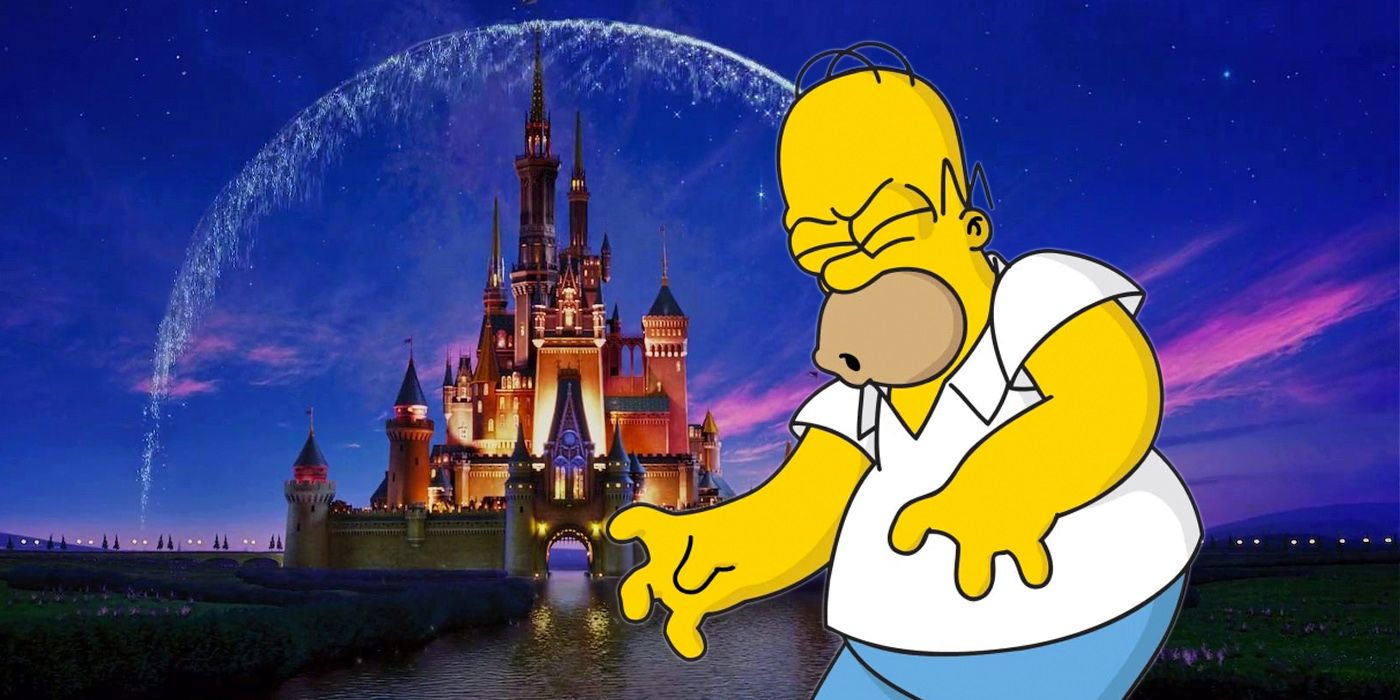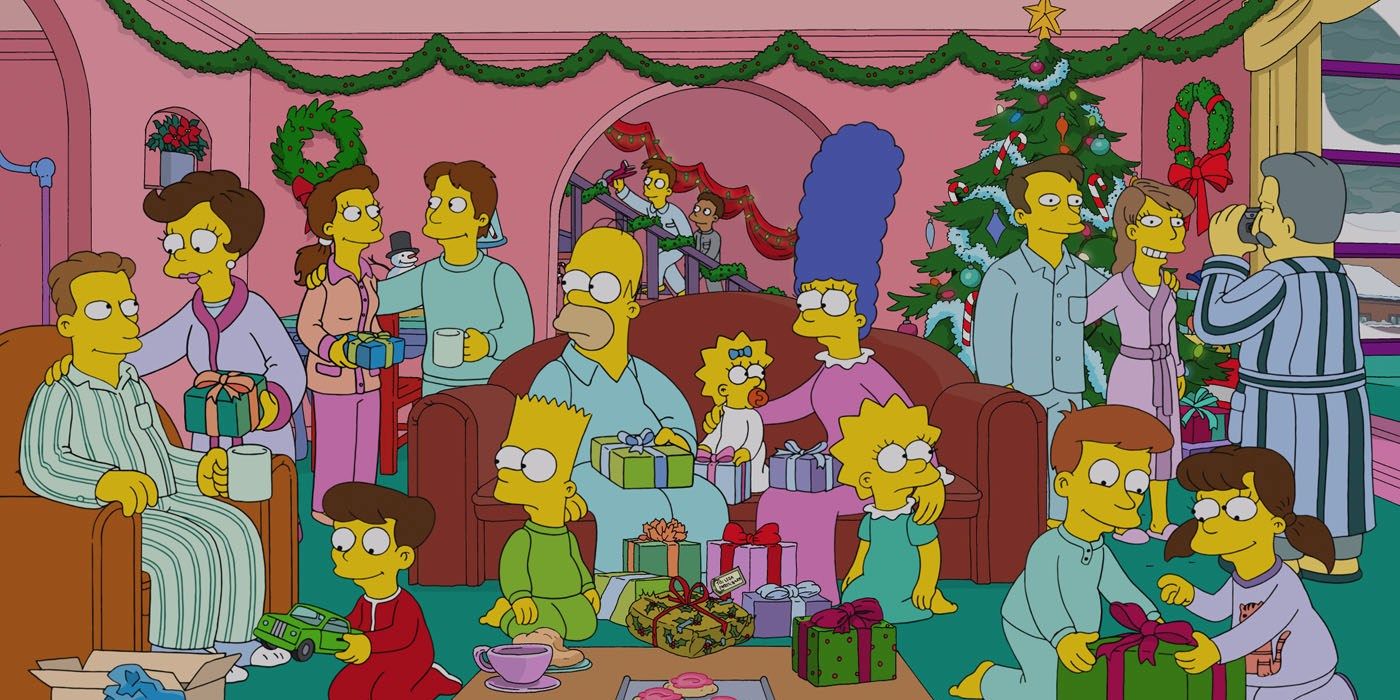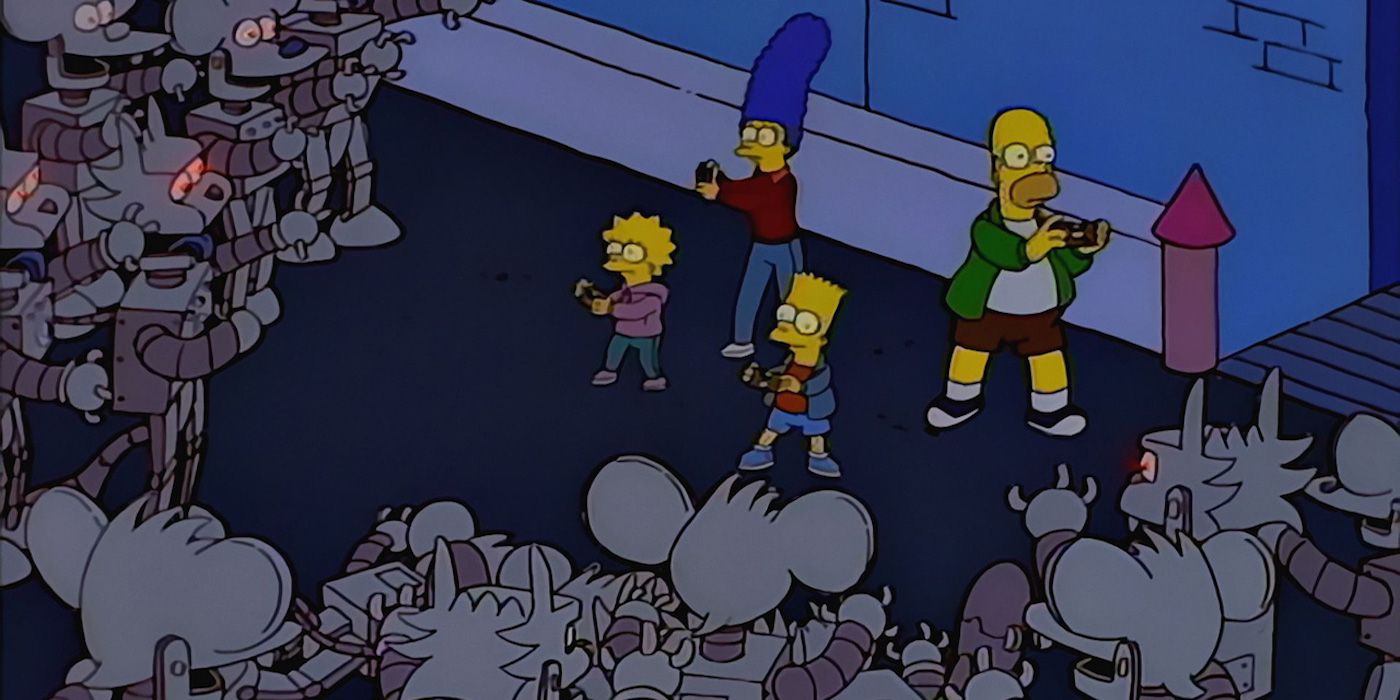It's the longest-running prime-time scripted TV show of all time, but a recent development could finally see The Simpsons come to an end. Fox's industry-changing classic has survived the endless changeover of writers, loss of actors, the internet, Y2K, the episode "Homer vs. Dignity", a complete lack of cultural relevance, and even the episode "Lisa Goes Gaga", so there's some irony it may actually happen at the corporate hands of Micky Mouse.
It was recently reported that Disney has been looking to buy up big chunks of Fox, specifically its movie division and TV channels. While this has expectedly got everyone speculating over what it means for the X-Men and the MCU (both companies biggest multimedia franchises that, of course, share a print universe), but there's plenty of other cultural monoliths that stand to be irreversibly changed by the potential deal: Avatar, Alien, Predator, Ice Age and more.
Read More: Marvel Buying X-Men Rights Would Be Bad For Fans
However, the focus on the film studios misses that the real meat of the deal comes on the small screen. Disney rules the multiplex already, having distributed six of the ten biggest movies of the decade domestically, and its restrictive home video release structure is as devious as it is exciting, but they're still looking to grow in the now-essential TV realm. That's what the Fox deal's really about, seeing it claim Peak TV king FX and all its associated channels, as well as FOX's wider back catalogue. And with all that comes the big question of why it needs The Simpsons.
Why Is The Simpsons Still On TV Anyway?
Make no mistake, The Simpsons is still one of the best shows of all time. Season 3-8 are unquestionably great TV (and let's not ignore the many classics outside, especially from Season 2, 9 & 10); funny, incisive, emotional, creative and revolutionary, it deserves its place in pop culture thanks to the consistency of the Golden Age. But those episodes aired in the mid-to-late-1990s. In the two decades since the show has spiraled downwards; we are now further from The Simpsons Movie than the 2007 film was from good Simpsons. And while some fans like to claim there's been a recent resurgence, that's insignificant against what the show once was. If the Golden Age was a truly unforgettable luncheon, "Zombie Simpsons" (as fans know it) really is just fast food passed off as home cooking.
That it's still on TV is sometimes perplexing. Week-to-week the show's ratings are low, with a dependable viewership that barely justifies its existence. Yet it not only maintains its Sunday night slot, it gets multi-season renewals: the current deal takes the show through to Season 30, which will wrap up 2020. At this point, it feels the only way for the show to end would be for it to lose a key voice member like Dan Castellaneta or Nancy Cartwright, and the fact it continued like a solar-powered monorail when Harry Shearer threatened to leave in 2015 suggests recasts or other get-arounds aren't out of the question. The Simpsons looks like it could run forever.
Related: The Simpsons - How Many Seasons Are Left?
And it's all because that initial quality and the phenomenon that accompanied it. Obviously, the cultural legacy means cancellation would lead to an inevitable uproar despite the fact nobody cares about the show anymore, but it's got a specific value to Fox. As icons, the Simpsons and the rest of Springfield transcend even the best moments of the show, with a marketing empire that may be a long way from The Simpsons Go Calypso yet remains a money-spinner. But their legacy is even more potent than money; The Simpsons made FOX as a channel in the early 1990s, single-handedly marking it out as a competitor to the traditional networks, and ushered in an age of adult-oriented animation its shadow still eclipses; to keep it going is a sign of continued dominance.
Why Disney Could Cancel The Simpsons
While the legacy of The Simpsons keeps it going at Fox, however, the strength of its brand today could end it at Disney. Sure, the Mouse House would get immediate flack for cancellation, but without all of the animation domination matters that make it so valuable to the creator, there just wouldn't be the same drive to keep it running. Indeed, considering that Disney's major area of expansion is streaming, the size of the full run (623 episodes and counting) is more than enough content; new episodes are a drop in that ocean, and you can bet Disney doesn't care one jot about a half-hour slot on a Sunday night.
To get an idea of what Disney instead might do should it get The Simpsons, we should look at the other acquisitions of the Bob Iger-era company: Pixar, Muppets, Marvel, and Lucasfilm. Each of these has been dealt in different ways, but the base approach is the same - distill the brand and expand or revolutionize. And what is The Simpsons brand? Due to its classical sitcom structure, everyone looks at The Simpsons as a parallel to, well, sitcoms; they exist, people laugh, then they eventually go away forever. That's why we're even talking about cancellation in the first place. But the characters' prominence has actually made them more like short cartoons - Looney Tunes, Hanna-Barbera or, of course, Disney's own roster. Rationally, they'd treat Homer like Mickey Mouse, not confined to a single content stream but a property to be used across all outputs.
If The Simpsons is only still on because of its legacy, new episodes are worthless. Disney would look past the show and see the value of the property, the strength of the icons, the worth of the back catalogue, the potency for a Springfield theme park. Maybe a new form of show or movie could come with time, but that is unlikely be an early priority. Disney would cancel The Simpsons to give it immortality.



